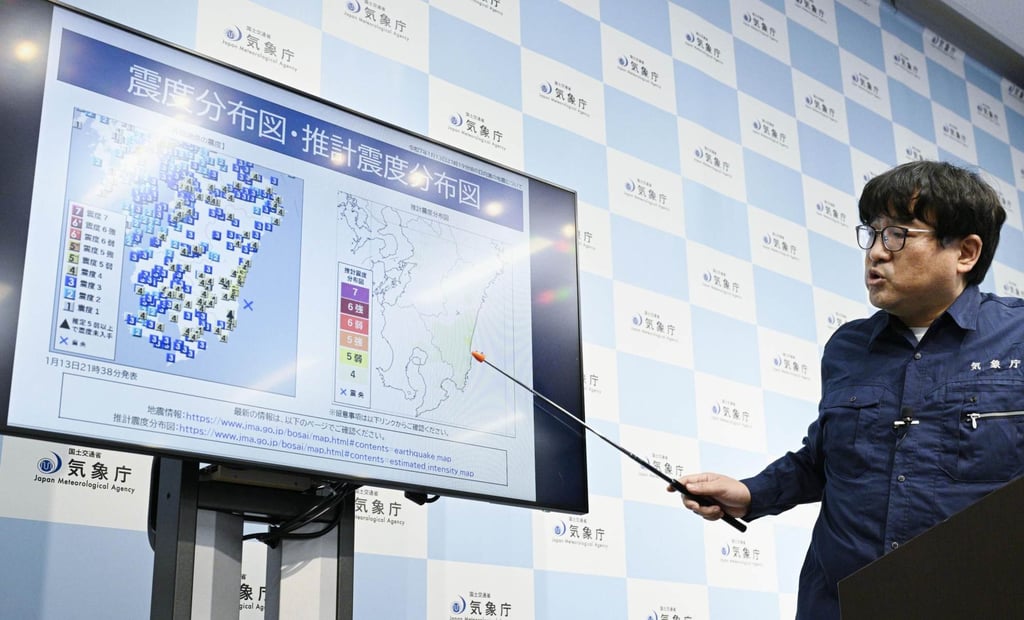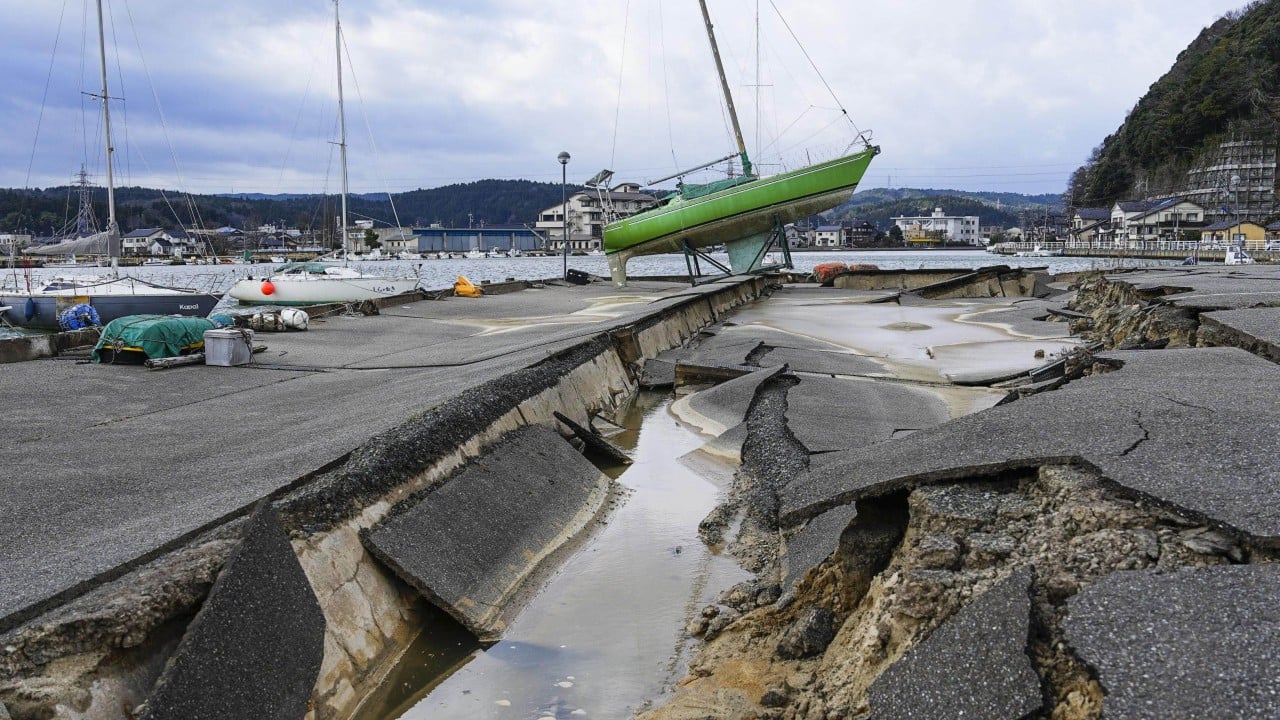A string of moderate earthquakes off the coast of Japan’s northern island of Hokkaido has reignited concerns among experts and residents about the risk of a catastrophic seismic event – though scientists stress the tremors do not necessarily signal an impending disaster.
Advertisement
Local authorities are taking no chances, however, instructing residents to take precautions just in case the new seismic activity proves to be a precursor to a long-feared megaquake.
A magnitude 4.7 quake struck off the southeast coast of the prefecture at 4.08am on Monday, just 16 minutes after a 6.3 tremor nearby. In a little over six hours from 5.37pm on Saturday, there had been no fewer than five tremors ranging from 4.3 to a magnitude of 6.1 in the same area.
The previous day, a 5.4-magnitude quake struck a little further north, but still close to the Chishima Trench. Running parallel to the Japanese coast, the 2,200km (1,400-mile) fault is where the Pacific tectonic plate subducts under the North American plate, causing a great deal of seismic activity.

The Japan Meteorological Agency (JMA) said that none of the quakes were severe enough to trigger additional seismic activity and that they were being treated as isolated incidents. But the agency did warn that the Chishima Trench had been the source of megaquakes in the past.
Advertisement

